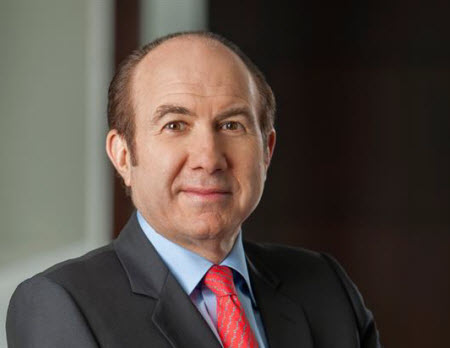The Philippe Phactor
The smarter way to stay on top of the multichannel video marketplace. Sign up below.
You are now subscribed
Your newsletter sign-up was successful

It hasn’t been a good week to be Philippe Dauman.
The Viacom executive chairman and CEO is a regular target of irate shareholders who blame him for the content company’s precipitous fall over the past few years. Now, he’s even taking shots from his onetime friend and mentor, and Viacom’s largest shareholder, Sumner Redstone.
Redstone’s moves to oust Dauman and longtime Viacom board member George Abrams from the trust that will manage Redstone’s controlling stake in Viacom after his death or incapacitation has fueled mounting speculation that Dauman is being forced out.
While Dauman works hard to repair his reputation, signs point to a showdown with Redstone’s daughter and Viacom nonexecutive vice chair of the board Shari Redstone, who has been gaining influence in the trust. Lawsuits have traded back and forth: Dauman to block Redstone’s moves, Shari Redstone to have her father’s wishes upheld.
As the palace intrigue roils on, it might be time to take a closer look at Dauman’s performance by comparing his often-criticized pay package with the rise or fall of Viacom’s market capitalization over the past five years.
Related:Viacom Board Prepared to Fight
There has been much talk of Viacom’s mismanagement and how executives were more interested in cashing massive compensation checks while ignoring trends in the TV business. That is all a matter of perception, though: Few current pay TV executives could have anticipated the rise of OTT players and skinny bundles five years ago, and most didn’t.
The smarter way to stay on top of the multichannel video marketplace. Sign up below.
At the same time, whether or not its youth-oriented channels make it a canary in the coal mine for the rest of the TV business, one unmistakable fact is that under Dauman and his top lieutenant, chief operating officer Tom Dooley, Viacom has faltered in the past few years.
A quick look at the stock price is evidence of that. Viacom shares are down about 25% since May 2011, shedding about $19 billion in market cap. At the same time, Dauman has received nearly $200 million in total compensation over that span and Dooley received $154 million in salary, stock-and-option awards and incentive compensation.
Since 2014, when Viacom stock was trading in the $80 range, the falloff is more dramatic. Since March 10, 2014, when Viacom shares closed at $88.90 each, the stock is down more than 50% to $39.95 on May 24, subtracting about $20 billion in market cap. Dauman and Dooley reaped a combined $145.8 million in total compensation over that period.
Dauman and Dooley aren’t the only media executives who have been criticized over their pay packages — and they aren’t even the highest paid. That distinction belongs to Discovery Communications CEO David Zaslav, who has received $324.1 million in total compensation in the past five years, skewed mostly because of one-time awards in 2014 that inflated his total pay to $156 million that year. Viacom’s sister company CBS was second, with chairman and CEO Les Moonves receiving $313 million in total compensation in the past five years.
But while Disney chairman and CEO Robert Iger received $199 million in total compensation between 2011 and 2015, for instance, Disney’s market cap soared 144.6% from $41.1 billion to $100.5 billion. CBS is up 105.6% to $54.2 billion from $26.4 billion in 2011; 21st Century Fox is up 69.6% to $28.9 billion from $17.1 billion in 2011; and Discovery is up 23% to $26.8 billion from $21.8 billion in 2011. Viacom’s market cap has fallen from about $35 billion in 2011 to $16.7 billion as of May 25.
Whatever the outcome, some analysts believe Dauman’s days are numbered. In a research note last week, Telsey Advisory Group media analyst Tom Eagan charted out several scenarios that ultimately end with Dauman’s ouster.
In a piece titled “Jersey Shore Has Nothing on This,” Eagan noted board changes at Viacom and National Amusements (the vehicle that holds Redstone’s Viacom stock). “We expect that Sumner and Shari Redstone will attempt to make changes in Viacom executive management, chiefly replacing CEO and chairman Phillippe Dauman,” Eagan wrote. “Although Mr. Dauman has the support of the Viacom board, we expect changes in that board.”
